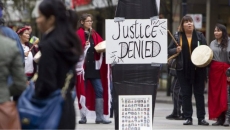In recent years, the reliance on food banks has witnessed a notable surge, leaving many to wonder about the underlying factors driving this trend. Earlier this year, there were an unprecedented 1.9 million visits to food banks in Canada. This is a 32% increase from 2022 and a 78% increase since before the pandemic. Unsurprisingly, food banks are approaching 2024 with growing concerns as the sustained increase in demand places additional strain on their resources and capacities.
One of the primary reasons behind the increasing dependence on food banks can be attributed to the financial challenges people face in affording healthy food. The escalating costs of living, including housing and food, have outpaced the growth in average incomes. The consequence is that an alarming number of people are unable to access or afford the food necessary for maintaining their well-being.
Executive Director at Sources Community Resources Society, Corina Carroll says, “We are seeing an increase in employed adults coming through the food bank. They are finding it hard to make ends meet with rising costs.” This situation, where the prices of essentials are soaring, and yet incomes are not increasing at the same pace, has compelled numerous individuals to turn to food banks as a lifeline to obtain the sustenance they need.
Divisional Secretary for Public Relations at The Salvation Army’s BC Division, Gina Haggett adds, “Those hit hardest include families with children – we have seen a significant increase in families with children who need our help. Moreover, over 32% of the households we have served this year alone are needing our support for the first time ever. What is especially troubling is that our food bank services to children have increased by over 27% from the previous year.”
While the increasing cost of living affects the entire population, certain vulnerable groups find themselves more severely impacted by this challenge. Indigenous people, new immigrants, and single-parent families face additional hurdles in securing good employment opportunities and support systems. This pre-existing disadvantage intensifies their struggles in accessing nutritious food. As a result, these marginalized communities are compelled to turn to food banks as a means of addressing their food insecurity. These groups often grapple with multiple layers of adversity. Factors such as discrimination, lack of opportunities, and limited access to resources further complicate their ability to provide for their families. In this context, food banks become a crucial source of support for these communities, helping bridge the gap in accessing nutritious meals.
The surge in demand has inevitably presented food banks with numerous challenges. Dan Huang-Taylor, Executive Director of Food Banks BC acknowledges the predicament organizations are facing, “There is a significant strain on food banks. Along with increased demand, we are also seeing major drops in donations, both food and monetary, of approximately 30% across the province.” While the need for their services continues to grow, the generosity of donors has seen a decline, mirroring the economic pressures affecting everyone. This situation places food banks in the challenging position of striving to do more with fewer resources.
Mahmood Zafar, Interim Executive Director at Surrey Food Bank details, “As the cost of living keeps climbing, more people are relying on us for help. However, at the same time, the generosity from donors is shrinking because everyone is feeling the pinch. So, we're stuck in this tricky spot, trying to do more with less. With our client list growing, we're ramping up our efforts to find and distribute more food. We're also upgrading our capacity to handle the food, making sure it stays in top shape. To make all of this happen, we’re working on some new and innovative approaches to generate funds. It's a challenging puzzle, but we're determined to crack it!”
Needless to say, the general public plays a pivotal role in supporting food banks during these challenging times. Paramount is the power of community action and how anyone can contribute to this cause. Spreading awareness is the first step; by informing friends and family about the vital role food banks play, individuals can create a ripple effect of support that can transform into a wave of assistance. Furthermore, even the smallest monthly donations can make a substantial difference. By contributing regularly, individuals are essentially planting seeds of sustainability that enable food banks to continue their essential work. Carroll encourages people to join this journey, “Host a food drive. Spread the word and help raise awareness about food security. Volunteer with your local food bank. If you can't give cash or food, try giving time.”
Ironically, a related communal concern is the underreported extent of food scarcity. Experts actually believe that the situation is more severe than estimated because many individuals in need are hesitant to use food bank services due to the stigma associated. This unreported population facing food scarcity emphasizes the urgency of addressing both immediate demand and systemic issues. That said, despite the difficulties, food banks are committed to showing up for the community. Director and Secretary of Guru Nanak Food Bank, Neeraj Walia assures, “We are not just a food bank, we are a home of hope. We believe that fostering a sense of community and empathy is crucial during these challenging times. Together, we can make a significant impact and support those facing food insecurity.”
Ultimately, the growing dependence on food banks is a multifaceted issue with far-reaching consequences. The increasing financial strain and the compounded challenges faced by vulnerable groups have contributed to this trend. Food banks, despite their own challenges, are committed to meeting this growing demand with innovation and resilience. However, the support of the general public is invaluable in addressing this issue and ensuring that no one goes without access to healthy food.
Haggett reminds, “Every day, individuals and families face tough decisions about how to make the choice between paying the rent or eating properly. These are our friends, our families, and our neighbors. Poverty is not a choice and it's not selective. We have all seen that people's circumstances can change at any time. We have also seen that a bag of groceries or a meal can be transformational. Simply knowing that someone cares is life-giving for many parents, seniors, and others — our own neighbors — who are silently struggling.” Undoubtedly, as we stand at the crossroads of hunger-related challenges, community action and generosity continue to be the driving forces behind the sustenance and well-being of countless individuals and families!






